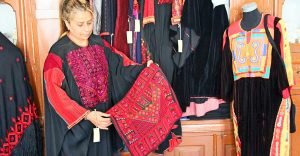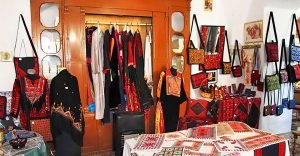The Bethlehem Arab Women Union: A Legacy of Empowerment, Heritage, and Community Service
In the heart of Bethlehem — a city of spiritual significance and deep-rooted tradition — the Bethlehem Arab Women Union (BAWU) has stood as a beacon of resilience, leadership, and community care since its founding in 1947. For over seven decades, this pioneering organization has been at the forefront of social change, uplifting generations of women and preserving the cultural identity of the Palestinian people.
Founding Vision and Early Roots
BAWU was established in the aftermath of the 1948 Nakba, during one of the most turbulent periods in Palestinian history. It emerged in response to the urgent need for humanitarian and social support among displaced families and marginalized communities. From the very beginning, it was a women-led effort, embodying both compassion and strength — a testament to the role of Palestinian women as protectors of family, culture, and identity.
Women’s Empowerment Through Work and Skills
Central to the Union’s mission is the empowerment of women through work, education, and skill-building. In 1969, the Union launched its Embroidery and Sewing Center, a landmark initiative that has since provided employment and income for dozens of women. Here, women handcraft traditional Palestinian garments, accessories, and home goods — sustaining both their livelihoods and the artistic legacy of generations past.
Later, in 1987, the Union expanded its vision by establishing a Traditional Palestinian Food Project, equipping women with culinary training, creating jobs, and introducing high-quality local foods to the market. This project not only supports families economically but also contributes to preserving Palestinian food heritage.
Cultural Preservation: Museums and Heritage
One of BAWU’s proudest achievements is the creation of two cultural institutions that safeguard and celebrate Bethlehem’s history:
- Baytna al-Talhami (“Our Bethlehem Home”) Museum: Situated on Star Street near Manger Square, this folklore museum was established in 1971 in a traditional Bethlehem home. It showcases 19th-century domestic life, traditional embroidery, silver jewelry, and household tools, all donated by local families.
- Bethlehem History Museum: Officially opened in 2015, this museum documents the city’s historical evolution through photographs, artifacts, and exhibitions. It stands as a testament to the perseverance of Bethlehem’s people, and highlights the unique contributions of women to the city’s cultural and social fabric.
Charity and Community Work
The Union has never lost sight of its humanitarian roots. Throughout the years, BAWU has:
- Distributed food parcels, clothing, and school supplies to disadvantaged families.
- Organized cultural and religious celebrations for children and the elderly.
- Offered first aid training, social awareness workshops, and wellness days for women.
- Responded to emergencies with direct aid, in partnership with local and international organizations.
During holy seasons such as Ramadan and Christmas, the Union becomes a hub of giving, hosting festive events and distributing aid to hundreds of beneficiaries.
A Model of Sustainability and Resilience
In recent years, BAWU has embraced sustainability by completing a solar energy system project — reducing operating costs and promoting environmental responsibility. The Union has also modernized its kitchen facilities and partnered with Palestinian diaspora communities to enhance its outreach and fundraising efforts.
Looking Ahead: Unity and Partnership
Today, under the leadership of Mrs. Diana Elias, the Bethlehem Arab Women Union continues to lead with vision and integrity. The organization actively seeks partnerships, donations, and volunteer engagement to sustain and grow its vital programs.
BAWU is more than a charity — it is a living institution that weaves together the threads of womanhood, heritage, community, and hope. In the face of political hardship and economic uncertainty, it remains a reminder that when women lead, entire societies rise.

